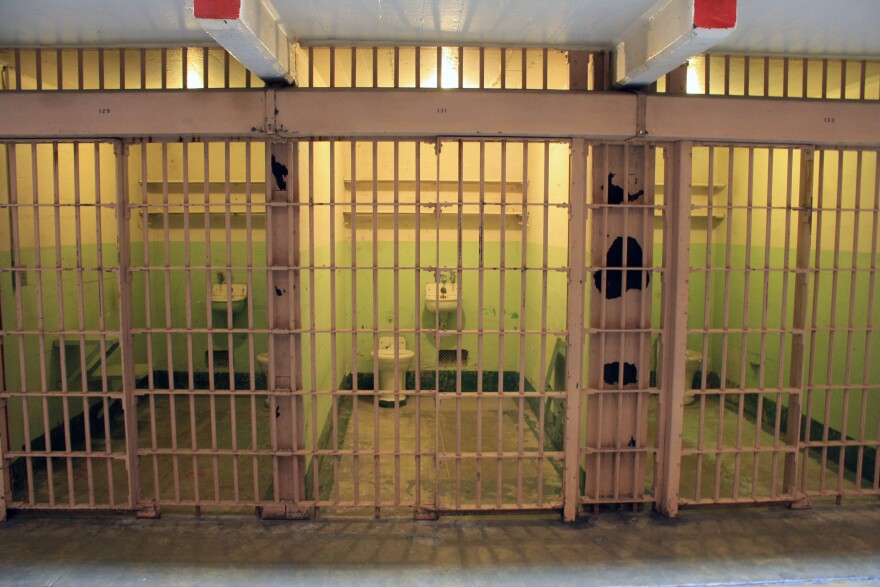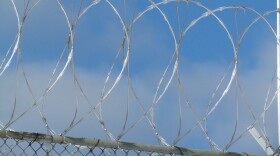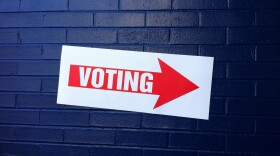Holding people in jail because they are too poor to make bail is unconstitutional, the U.S. Department of Justice declared in a court filing last week.
The filing came in support of the case of Maurice Walker of Calhoun, Georgia, who was kept in jail six nights because he could not pay the fixed bail amount of $160.
Walker was released after a federal judge ruled in his favor and "ordered the city to let those arrested on misdemeanor offenses be released on their own recognizance and to make other changes in its post-arrest procedures," according to NBC News. The Justice Department said in a brief:
Bail practices that incarcerate indigent individuals before trial solely because of their inability to pay for their release violate the Fourteenth Amendment and result in the unnecessary incarceration of numerous individuals who are presumed innocent.
This is the first time the Justice Department has weighed in on the constitutionality of bail systems in a federal appeals court.
Bail is designed to prevent an accused person from fleeing while awaiting trial. The person can post cash to get out of jail, and as long as they make their court appearances, they get the money back at the end of the case.
This sounds simple for those who can afford it. But lots of people don't have money readily available. This leaves poor people sitting in jail – before they are even convicted of a crime. According to The Atlantic:
Most of the 12 million jail bookings in the United States each year are for low-level, nonviolent charges. Yet far too many of these defendants remain in jail while awaiting their day in court because they cannot afford money bail. More than 60 percent of people locked up in America’s jails have not yet been to trial, and as many as nine in 10 of those people are stuck in jail because they can’t afford to post bond. They are presumed innocent until proven guilty, according to a bedrock principle of the justice system. Low-risk defendants charged with offenses like shoplifting or traffic violations often wait in jail for days, months, or even years for a trial. But that’s the reality of the current justice system, one that spends nearly $14 billion a year on pretrial confinement.
While it may not seem like it, even short-term pretrial incarceration can have dire consequences. People can lose their housing, job, or custody of their kids.
And a new study shows two other consequences of the bail system: more crime and false convictions.
Researchers found that the assignment of bail caused a 6 to 9% increase in recidivism in Philadelphia and Pittsburgh, and a 12% in convictions in Philadelphia, according to a post on Vox.
The dollar amount of the bail did not matter, only whether it was assigned. The researchers wrote:
Money bail, as a source of pretrial detention, imposes significant costs on defendants. As the Supreme Court has written, pretrial detention “may imperil the suspect’s job, interrupt his source of income, . . . impair his family relationships [and affect his] ability to assist in preparation of his defense.” Many defendants who are detained on money bail before trial may consequently choose to plead guilty to avoid or minimize further detention. … Money bail may also directly influence recidivism through the harms of pretrial incarceration imposed upon those unable to make bail, post-trial incarceration following conviction, or the stigma of conviction.
So, a defendant may plead guilty just to get out of jail. And the resulting criminal record can harm their ability to obtain legal work, leading them to potentially commit crime to make ends meet.
There may be crimes, like murder, where it may be deemed someone should not be released from jail while awaiting trial. But there are alternatives to bail when the person poses no risk. According to Vox:
In federal courts and Washington, DC, courts are only allowed to set bail if the defendant can afford it. To ensure people don't flee or commit a crime while out, the system checks if someone poses a flight risk or is dangerous. If a judge decides a defendant does not pose a risk, the person can go home, where he or she may be monitored further by drug tests and ankle monitors. In DC, the system has worked: 90 percent of released defendants made all scheduled court appearances, and 91 percent remained arrest-free while their cases proceeded. This can also cost governments less money: An analysis by the Administrative Office of US Courts found supervision by pretrial services officers costs about a tenth as much as keeping someone locked up.
This new study is limited. The results are from Philadelphia and Pittsburgh only, so it is not known if they apply nationwide. Rachel Marshall, an Oakland, California public defender, wrote for Vox:
What becomes painfully clear from looking at our bail system is that it is not designed to be either efficient or fair. Instead, our bail system exists as a way to perpetuate our nation’s war on poor people. Our criminal justice system “trusts” the wealthy more and gives them benefits my clients never see. Chief among them is the farce of a fair and equal bail system that ultimately lets the wealthy out of jail for nearly all but the most serious crimes, while poor people remain in jail for even the most minor ones...The DOJ’s briefing is a huge step toward progress in the area of bail. Let’s embrace their call for radical change and push for the elimination of bail altogether. It’s time to start a real war on poverty — and end the war on the poor.







